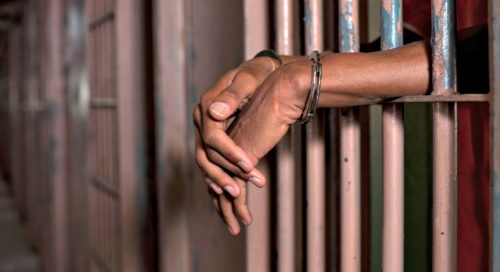By Destiny Uko
As families across Nigeria gather to celebrate Father’s Day with meals, gifts, and laughter, thousands of fathers will mark the occasion behind prison walls, separated from their children, yet still determined to show up for them.
Today, Sunday, June 15, 2025, the celebration extends beyond households and communities to include those in custody—men who, despite incarceration, continue to parent through phone calls, handwritten letters, and limited in-person contact.
Nigeria’s Incarcerated Fathers: The Overlooked Majority
Nigeria has one of the highest pretrial detention rates in Africa, with over 70% of its prison population still awaiting trial, many for non-violent offences or delays in the judicial process. A significant portion of these men are fathers. Yet, within the limitations of the Nigerian correctional system, some incarcerated fathers are finding creative ways to remain present in their children’s lives.
Despite limited institutional support, a mix of grassroots, nonprofit, and faith-based organizations are helping incarcerated fathers bridge the emotional gap between prison and parenthood
Handwritten Letters
With limited access to digital communication, handwritten letters have become an essential link between incarcerated fathers and their families. Nonprofits like AnchorHope Nigeria supply inmates with writing materials and help deliver their messages to children on the outside.
Ten-minute Phone Calls
In prisons like Kirikiri and Agodi, selected inmates are allowed short supervised calls, often just 10 minutes a week. The airtime is frequently funded by NGOs or faith communities.
Organisations like Forgotten Voices operate mobile outreach programmes that provide prepaid call slots for fathers to connect with their children during holidays and birthdays.
Fatherhood Rehabilitation
In Lagos and Abuja, counselling programmes are helping incarcerated men heal emotionally and prepare for responsible parenting upon release. These sessions, led by volunteer psychologists from the African Centre for Justice and Human Rights (ACJHR) focus on emotional regulation, trauma healing, and communication.
Faith-Based Mentorship
Inside many correctional facilities, religious organisations host mentorship circles where fatherhood is discussed as a spiritual responsibility. Through sermons, prayer meetings, and group discussions, incarcerated men are encouraged to rebuild their sense of purpose through faith and fatherhood.
Studies show that faith-based programmes contribute to reduced violence and increased rehabilitation among inmates.
Special Visitation Days
On special days like Children’s Day and Father’s Day, NGOs coordinate special visitation programmes. Children send in recorded voice notes, drawings, or video messages that are played for their fathers. In some centres, supervised in-person visits are allowed, giving inmates brief moments of emotional reconnection.
Why it matters
Children who maintain contact with their incarcerated fathers show higher emotional resilience and academic engagement. For fathers, that connection offers a sense of identity beyond their criminal label.
Family engagement is also one of the strongest indicators of positive change after release. Inmates who remain connected to loved ones are 43% less likely to reoffend.
On this Father’s Day, the narrative of fatherhood in Nigeria must include those whose love perseveres behind prison bars. In a system that often overlooks their existence, these men continue to remember their children–with every call, every letter, every step toward emotional healing. They remain fathers and deserve recognition on this special day.
On Father’s Day in Nigeria, many fathers remain incarcerated, striving to maintain connections with their children despite the limitations of the prison system. With about 70% of Nigeria's incarcerated men awaiting trial, often for non-violent offenses, these fathers use creative methods such as handwritten letters and brief phone calls, facilitated by nonprofits and faith-based organizations, to stay involved in their children's lives. Initiatives like AnchorHope Nigeria provide writing materials, while groups like Forgotten Voices offer prepaid call slots for special occasions.
In addition, fatherhood rehabilitation programs in Lagos and Abuja focus on emotional healing and responsible parenting, while faith-based mentorship discusses the spiritual aspects of fatherhood. These efforts help fathers in prison regain a sense of purpose and establish stronger bonds with their families. Special visitation programs on days like Children's Day and Father's Day facilitate emotional reconnection through recorded messages and supervised visits.
Maintaining contact has significant benefits, increasing emotional resilience and academic engagement in children and reducing the likelihood of reoffending by 43% among released inmates. In a system that usually overlooks them, these fathers’ efforts to stay connected with their children demonstrate their enduring love and deserve recognition.






